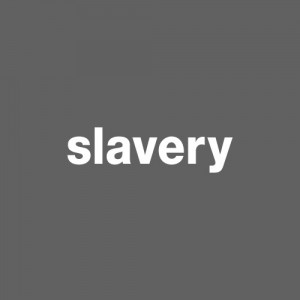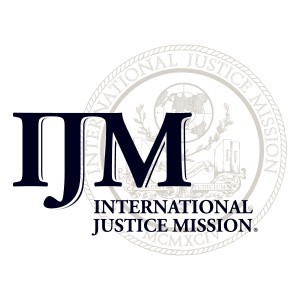This week, City Law School played host to Attorney General Dominic Grieve, who gave a lecture on the role of UK law in combating international slavery and human trafficking.

Dominic Grieve was joined by James Ewins of Queen Elizabeth Building, who gave a talk on his work as Director of the Bangalore Field Office of International Justice Mission (IJM). The lecture considered approaches taken to preventing slavery and trafficking in national and international law; though Dominic Greive focussed on the UK’s role, while James Ewins examined steps that could be taken locally in overseas jurisdictions, both speakers stressed the fundamental importance of strengthening the rule of law for preventing these types of crimes.
After describing his role and functions as Attorney General, Dominic Grieve outlined the growing problem of transnational crime, arising from what termed the “globalization of crime”. He described the interaction between national and international law in the modern legal framework for dealing with this type of crime, for example in the UN Palermo Convention and subsequent Palermo Protocol “to prevent, suppress and punish trafficking in persons” and in EU directives such as the recent 2011 directive to which the UK government has opted in.
Emphasising the importance of creating a strong deterrent through criminal sanctions, he went on to give examples of how UK legislation such as the Sexual Offences Act 2003 and the Asylum and Immigration Act 2004 has created specific crimes related to trafficking, the development of the law reflecting a changing understanding of the nature of the problem in a move from a focus on sexual exploitation to other forms of exploitation. For example, later legislation such as the Coroners and Justice Act 2009 has shown a growing awareness of the problems of slavery and compulsory labour demonstrated by the Morecambe Bay cockle pickers disaster. Further legislative change will be implemented should the Protection of Freedoms Bill pass into law.
Acknowledging persistent problems such as the reluctance of victims to come forward, the Attorney General emphasised how a multi-agency approach, both at a strategic and an operational level offers a “joined up solution” in the United Kingdom. He suggested that the United Kingdom places the victims of trafficking and slavery at the centre of its approach. Building on the argument that trafficking is “fuelled by globalisation”, he stressed the role of international cooperation and mutual legal assistance in combating this systemic and endemic problem.
He described the international work of the Crown Prosecution Service, sharing UK experience to strengthen the Rule of Law in overseas jurisdictions, pointing out that countries where the rule of law is less well established can be targeted by organised crime. He suggested the UK can offer assistance by identifying blockages to prosecutions, giving advice on legislation and training practitioners.
International relations play a key role in promoting positive change; it was suggested that Jordan offered one example of a country where international pressure has led to “profound changes” in Jordanian justice.

The Attorney General concluded his lecture by suggesting challenges that the law must approach in future, for example in the continuing difficulty of obtaining consistent or accurate data about the extent of the problem. Despite these continuing issues, he suggested that by placing victims of crime at the centre of its approach and attempting to ensure that this country offers no safe haven for traffickers, the United Kingdom is moving in the right direction.
Jame Ewins’ lecture focussed on his work with the International Justice Mission, an NGO founded in 1997 which operates in 13 countries. IJM aims to achieve sustainable protection from violence by working through local legal systems; he stressed that without working through local systems such work would be unsustainable and unlawful. Each IJM office focuses its resources on a defined geographical area and a single category of abuse.
In the case of the Bangalore office where James Ewins was director, the category in question was bonded labour slavery. He gave the example of a worker who, having borrowed £150 for his daughter’s coming of age ceremony, found that he, his wife, daughter and relatives were slaves, working 11 hours a day in a brick kiln, suffering threats and beatings, and locked up every night. By talking through the process of rescuing this worker and his family, James Ewins described the ways in which the NGO operates within the areas in which they work.
In addition to direct help and intervention, he stressed the importance of record-keeping in IJM’s strategy, for example in the documentation of excuses given by officials for not enforcing legislation, one particularly brazen example being a plea that the official in question was occupied measuring the gaps between desks. By documenting such details, the NGO is able to suggest the reasons behind systemic problems through statistical analysis in a “collaborative casework” approach, offering both diagnosis and remedies.
The work of IJM takes place at every stage, from obtaining evidence through undercover investigations, providing onsite legal advice and assistance to police during rescue operations and offering after-care support for victims, for example helping them in their claims for statutory grants for rehabilitation. However, problems are ongoing; it is not unusual for the prosecution of perpetrators to take as long as seven years.
James Ewins stressed the scale of this problem internationally, citing a 2008 UN study which suggests that 4 billion people live outside the protection of the rule of law and a World Bank study which suggested many poor people see the police as a source of danger rather than protection, effectively becoming victims rather than beneficiaries of the public justice system.
He placed emphasis on the problems which ineffective local delivery systems create for the enforcement of effective legal rights, with ongoing problems such as widespread corruption, outdated public justice systems and crippling backlogs. He likened the situation to creating a brilliant vaccine which cannot be distributed.
Despite the enormity and intractability of this problem, change is possible; the IJM’s Project Lantern in the Philippines succeeded in reducing child sex trafficking in Cebu by an estimated 79%, suggesting the possibility of such “transformative solutions” working in the future. James Ewins concluded his speech by inviting lawyers to join other professionals in offering a vocational contribution to development, reiterating the importance of sharing UK rule of law values internationally.
Slavery and trafficking are continuing problems both in the UK and abroad; this international problem demands international solutions, and both the UK government and UK lawyers have a role to play in creating those solutions.
Following the talks, the Attorney General and James Ewins, joined by Terry Tennens, Executive Director of IJM UK, took questions on the lecture. Questions from the floor raised issues such as the interaction between criminal sanctions for trafficking and issues of asylum and immigration and the potential impact of the Legal Aid, Sentencing and Punishment of Offenders Bill on attempts to protect victims.
Hugh Cumber is currently studying his GDL at The City Law School.

